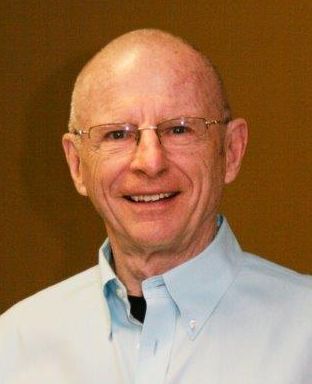 In addition to the many other hats you wear, these days you are serving as director of the D.Min. program at Emmanuel Christian Seminary. Of course, teachers always learn as much as their students do at this level. What are your students and your reading teaching you these days? In addition to the many other hats you wear, these days you are serving as director of the D.Min. program at Emmanuel Christian Seminary. Of course, teachers always learn as much as their students do at this level. What are your students and your reading teaching you these days?
That today’s minister works in a world far different from the one I entered more than 50 years ago. The Gospel is the same, the essence of the church is the same, but the culture in which we work is vastly different. What surprises me about my students is how surprised they aren’t about the issues that challenge my generation. We look through quite different lenses at controversies like sex and gender, abortion, styles of worship, “the essentials and the non-essentials.” We agree on the “in all things love” part of the slogan we restorationists hold so dear, but don’t always agree on how that love is to be expressed.
I feel I am one of the blessed ones on earth. My work requires that I listen carefully to all the different generational voices, not just the voice of my contemporaries. As you said, my students are teaching me much.
You’ll be speaking at the ECC on equipping people to be “Sent.” What is one thing you would tell church leaders about helping their people grow in this way?
I guess I would tell them it does little good to say to others, “You go and do this!” It’s like the old schoolyard joke, “Let’s you and him fight (but leave me out of it).” People are more inspired by our modeling than by preaching and teaching. They learn by seeing an example and then by practicing what’s been modeled. If we’re not careful, in the church we’ll study a lot and talk a lot–but not do a lot. Jesus understood that you can’t lead where you don’t go. That’s why he said, “Follow me.”
Milligan and Emmanuel announced they will complete their merger and make it official next summer. What are some benefits you see for both schools in this merger?
The benefits are almost too many to enumerate. Let’s start with the obvious: Emmanuel probably would cease to exist without it. Graduate education has simply become too expensive for a small, quality institution like Emmanuel to go it alone.
Beyond the finances? A strengthened combined faculty, the energy that comes from working together, shared facilities and technical support. Milligan adds a strong seminary to its graduate-level offerings, including at the doctoral level; Emmanuel can expand its offerings by drawing on Milligan’s offerings in other fields like music, psychology and counseling, and drama. And of course in ministry, students entering Milligan as freshmen will be able to concentrate on ministerial studies through their bachelor’s, master’s, and doctoral degree programs.
An interesting footnote: Milligan has a very strong regional presence and is recognized as one of this region’s best schools. Emmanuel has a stronger national presence and is better known in much of the country (especially on the west coast) than Milligan is. So each school will enhance the other’s reputation.
As you can tell, I’m a believer!
We’re excited to hear LeRoy speak in our final session on Sunday morning! |